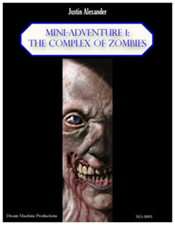 Pheasants are really stupid birds. They’ll go into a potato patch, dig up a potato, and start eating it. But if anything distracts them enough to make them look away from the potato, they’ll drop the potato. “Ugh!” they say. “Someone’s been eating this potato!” And they’ll move along to the next potato until… “Oh! Gross! Someone’s been eating this potato!”
Pheasants are really stupid birds. They’ll go into a potato patch, dig up a potato, and start eating it. But if anything distracts them enough to make them look away from the potato, they’ll drop the potato. “Ugh!” they say. “Someone’s been eating this potato!” And they’ll move along to the next potato until… “Oh! Gross! Someone’s been eating this potato!”
You end up with a whole line of potatoes with one or two bites out of them.
In my personal little headcanon I like to imagine zombies do the same thing: “RAWWWGGHHH!! DELICIOUS FLESH!!!! MUAAARGHHH… Oh. Gross. This one’s dead. Let’s get another one.”












That is brilliant!
But a dead person is sure to become a zombie themselves. The walking dead are a lot of things, but they’re not cannibals.
This is less relevant for something like 28 Days Later or the film version of World War Z where the zombies rise up 30 seconds after infection. But it does explain why flesh-hungry zombies generally don’t finish eating people in the settings where it takes hours before the corpses animate.
It was originally meant as a joke, but you might consider other predators, like cats or dolphins, that kill for sport. But more to the point, zombies represent man’s undifferentiated rapaciousness; we don’t kill for sustenance–we kill because we can.